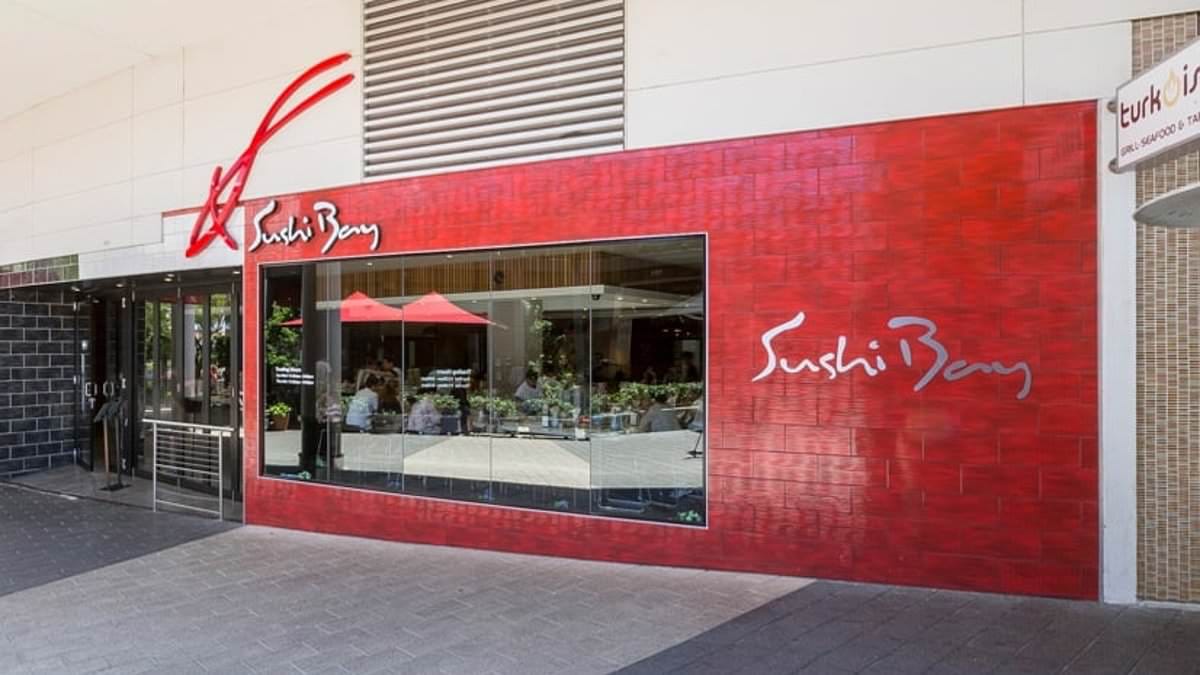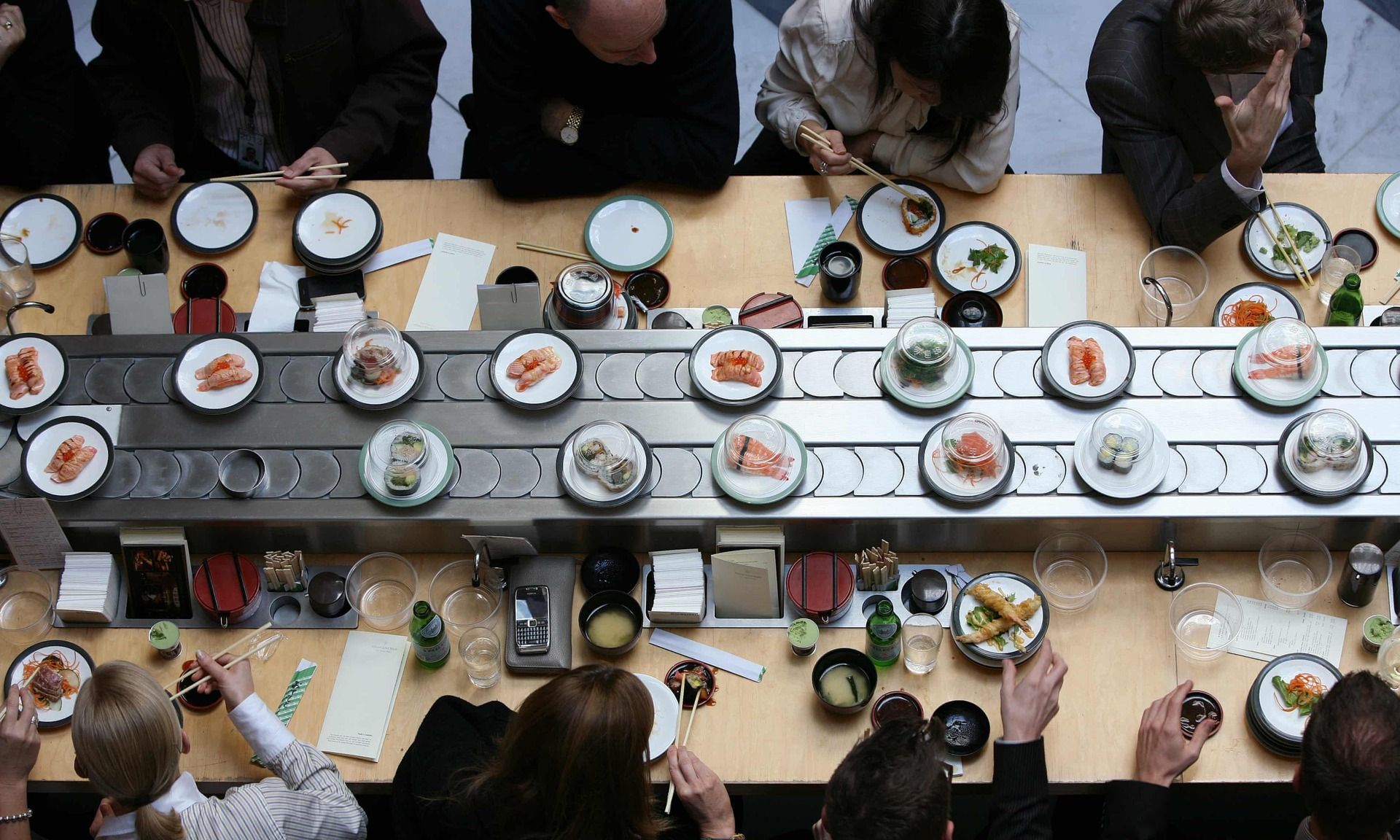- The Runway Ventures
- Posts
- 🤯 The Sushi Bay Scandal: 163 Workers Exploited
🤯 The Sushi Bay Scandal: 163 Workers Exploited
Inside the shocking legal battles, tax debts, and ethical failures that brought down one of Australia’s most popular sushi chains.
Hey Founders,
Welcome to The Runway Ventures — a weekly newsletter where I deep dive into failed startup stories to help you become the top 1% founder by learning from their mistakes with actionable insights.
Today’s story is about an Australian sushi chain that expanded rapidly, underpaid staff, ignored compliance, and ultimately fell apart. Let’s get to it! 🚀
Today at a Glance:
☠️ 1 Failed Startup → Sushi Bay
⚠️ 2 Mistakes → Cutting costs by cutting people
🧠 3 Lessons Learned → Pay people what they deserve
🔗 The Runway Insights → YC: Billion-dollar unpopular startup ideas
💰 Southeast Asia Funding Radar → Paywatch raises $20M (Series A) to help companies deploy Earned Wage Access (EWA) as an employee benefit
🤝🏻 Together with What the Fraud Summit 2025
Because fraud doesn’t just steal money — it kills companies.
I’ve written 90+ failed startup stories, and the worst ones came from Indonesia — fake revenue, fake users, fake trust.
But it’s not just Indonesia. Singapore, Malaysia, Thailand, and Vietnam are also seeing fraud cases rise fast.
Now the data proves it: Southeast Asia ranks among the most vulnerable regions for fraud.
If you’re building in SEA, don’t sit this out.
There are many ways to win — but only a few ways to die.
Fraud is one of them.
Join What the Fraud Summit hosted by Sumsub (Nov 19-20, Andaz Singapore).
PS - Use code (ADMOND15) for 15% off
☠️ 1 Failed Startup: Sushi Bay
🚀 The Rise of Sushi Bay
🇦🇺 Founded by a Korean-Australian entrepreneur named Yi Jeong “Rebecca” Shi in 2004, Sushi Bay was an Australian conveyor-belt sushi (kaiten sushi) restaurant chain.
🕺🏻 Founders’ Story
Shin was a Korean immigrant who saw a gap in Australia’s dining scene for quick, fresh Japanese food.
🍣 Inspired by the popularity of sushi trains in Asia, she launched the first outlet in Sydney with a simple vision: make sushi fun, fast, and accessible.
Shin ran the business with her family, overseeing its steady growth into a multi-location chain. Her hands-on approach and focus on quality helped Sushi Bay become a go-to spot for conveyor-belt sushi lovers across Australia.
The Problem — 💵 Busy Australians struggled to find a quick, affordable, and fresh dining option—especially for Japanese food — without the long wait times or high prices of traditional restaurants.
The Solution — 🍣 Sushi Bay introduced a conveyor-belt sushi (kaiten) system that let customers grab freshly prepared dishes on the spot, combining speed, variety, and entertainment in a casual dining setting.
It was a novel experience in the mid-2000s, and diners loved it.
💰 And the business model was straightforward and brilliant:
They operated lean and kept staffing costs low by hiring migrant workers (often students on working visas or 457 skilled worker visa holders), and maximised the conveyor belt concept.
🍣 In short, Sushi Bay made it accessible to everyday Australians who wanted fresh, quick Japanese food without breaking the bank with its conveyor-belt sushi.
The first outlet proved popular. 🍱 By the late 2000s and into the 2010s, sushi trains had become a full-on craze in Australia — a fast, healthy and accessible dining option for busy folks. 🏄🏻♂️ Sushi Bay rode that wave. |
The chain expanded to over 10 locations across NSW, Canberra, and Darwin.
⛰️ At its peak, Sushi Bay:
Grew from a single sushi train into a mini empire of sushi restaurants.
Expanded to 16 outlets across New South Wales, the ACT (Canberra) and even as far as Darwin in the Northern Territory.
Had dozens of employees, steady streams of customers, and built national brand recognition across multiple states.
📉 The Fall of Sushi Bay
🤯 While Sushi Bay looked like a legitimate, thriving chain, court findings later showed widespread underpayment and falsified records. The company also faced significant tax debts, which contributed to its liquidation.
Behind the scenes were significant underpayment findings, tax liabilities, and multiple legal proceedings.
📌 Here’s what happened to Sushi Bay:
This is yet another case of the exploitation of immigrant workers and a shameless but ultimately unsuccessful attempt to conceal it.
🍣🍣🍣 Sushi, sushi, sushi

2004 — 🍣Sushi Bay was founded in Sydney by Yi Jeong “Rebecca” Shin, a Korean immigrant entrepreneur, who opened the 1st sushi train outlet.
🥷🏻🥷🏻🥷🏻 Sushi → Fishy

2019 — 🚨 The company faced its first major legal sanction → a federal court fined Sushi Bay A$124,416 for underpaying 22 staff at its Canberra restaurant, foreshadowing bigger troubles ahead.
Mar 2022 — 🚨🚨 2 former workers of Sushi Bay lodged complaints to the Fair Work Ombudsman about underpayment.
Australia’s Fair Work Ombudsman initiated legal action against Sushi Bay, alleging the chain had underpaid workers by well over A$500,000 over several years and had violated the Fair Work Act.
This began a high-profile investigation into Sushi Bay’s labor practices.
2023
Feb — 👨🏻⚖️ Amid mounting tax debts, the Australian Taxation Office obtained court orders to wind up several Sushi Bay entities.
Multiple NSW restaurants (i.e. Sushi Bay Miranda, Wollongong, Merrylands) were placed into court-ordered liquidation for unpaid taxes.
Mar — 📉 The collapse accelerated.
More Sushi Bay companies were liquidated, including those operating outlets in NSW and the ACT.
By the end of March, virtually the entire Sushi Bay network had shut down except one site.
Apr — 💣 Sushi Bay’s business imploded.
The chain that once boasted 10+ locations was now reduced to a single remaining store.
All other outlets had closed their doors and were in liquidation proceedings.
The last store (Campbelltown, NSW) struggled on under supervision, itself saddled with over A$1.5M in tax debt.
Aug 2024 — ⚠️⚠️ The Federal Court delivered its judgement.
Sushi Bay and its owner were hit with record penalties totalling A$15.3 million for “deliberately exploiting” vulnerable 163 migrant workers (mostly Korean nationals on student, working holiday and 457 skilled worker visas) and falsifying records.
According to the Fair Work Ombudsman, the company underpaid these 163 migrant workers a total of $653,129 between February 2016 and January 2020, and falsified records to try to cover it up.
Rebecca Shin was personally fined A$1.6M and ordered to compensate employees.
🙏🏻 This was the largest worker-exploitation fine in Australian history.
Aug 2024 – ☠️ With the massive fines adding to its woes, Sushi Bay’s insolvency left more than A$21 million in total debts.
The collapse went down as one of the biggest failures in Australia’s restaurant sector, marking a bitter end to Sushi Bay’s 20-year story.
🤦🏻♂️ Unfortunately, Sushi Bay failed because the Federal Court found that the company and its sole director had deliberately and repeatedly contravened workplace laws, resulting in significant underpayments to vulnerable workers.
Instead, Sushi Bay became a cautionary tale about the dangers of unchecked greed, the vulnerability of migrant workers in Australia, and what happens when entrepreneurs prioritise short-term profit extraction over ethical business practices.
The only remaining Sushi Bay store in Campbelltown continues to operate under liquidation, a ghost of what once promised to be a thriving restaurant chain.
It's a reminder that bad actors get caught. It just sometimes takes a while.
Want to learn more about Sushi Bay’s downfall?
⚠️ 2 Mistakes
If you deliberately underpay migrant workers and try to cover it up with false or misleading records you will be found out and will pay a heavy price.
Mistake 1: Cutting costs by cutting people
Sushi Bay underpaid more than 163 workers, many of them young migrant staff on temporary visas.
⚠️ This wasn’t a rounding error. It was systematic:
Underpaying hourly wages
Not paying overtime
Falsifying timesheets
Making staff “pay back” part of their wages
Creating fake records to hide the discrepancies
On paper, it looked like they were cutting labor costs and protecting margins. In reality, they were picking a fight with the Fair Work Ombudsman, ATO, and the Federal Court all at once.
The “savings” were maybe a few hundred thousand dollars.
The penalties? $15.3 million — the biggest worker-exploitation fine in Australian history.
Short-term savings.
Long-term detonation.
Mistake 2: Scaling without strong foundations
Sushi Bay kept opening new outlets even though the fundamentals behind the scenes were already falling apart.
Instead of strengthening payroll systems, tightening compliance, fixing tax issues, or building proper financial controls, they pushed for more stores — multiplying the problems they hadn’t yet solved.
🚨 They had:
inconsistent payroll processes
poor record-keeping
unresolved tax liabilities
zero internal auditing
no scalable HR or compliance systems
In short: they scaled the front-end (brand + stores) without scaling the back-end (systems + controls) — a fatal mismatch that made failure inevitable.
🧠 3 Lessons Learned
Lesson 1: Pay people what they deserve
If there’s one brutal truth Sushi Bay teaches us, it’s this → you can’t underpay your way to profitability.
They tried it — cutting wages, skipping overtime, manipulating records — and the “savings” were tiny compared to the disaster that followed.
The fines alone could’ve funded years of fair, competitive salaries.
🌮 Key Takeaways:
💟 Take care of your employees
In F&B (and honestly, any industry), your people are the engine.
Underpay them and the engine sputters: slow service, sloppy execution, high turnover, bad reviews, low morale.
For example, Australia's chain Sushi Hub became a category leader by prioritising fair pay and robust training, not just conveyor belts. Happy staff mean repeat business and sustainable growth.
Take care of your employees, and your employees will take care of your business.
🙏🏻 Reward your frontline early
A $2/hour raise is cheaper than rehiring, retraining, or recovering from reputational damage.
Well-paid staff stay longer, learn more, mess up less, and deliver predictable quality — which is the real margin booster.
Lesson 2: Scale your system before scaling your business
Before you scale outward (more customers, more stores, more users), you must scale inward (systems, controls, processes).
Growth should sit on top of strong foundations — never in place of them.
🌮 Key Takeaways:
📜 Document your business like you want someone else to run it
SOPs, workflows, checklists — these turn chaos into consistency.
🫡 Build compliance early
Payroll accuracy, tax hygiene, and supplier contracts.
These aren’t admin, they’re survival.
💪🏻 Don’t allow operational debt to accumulate
Tech has technical debt. F&B has operational debt.
If your POS data is messy, your food costs fluctuate, and staff rosters are done manually… adding a second outlet will double your mess, not your revenue.
Ignore it long enough… and it’ll collect interest with regulators.
Lesson 3: Lead with integrity and fairness
Do the right things first, then do the things right.
Sushi Bay’s downfall shows what happens when leadership chooses shortcuts over principles. When the founder compromised integrity — underpaying staff, hiding records, dodging compliance — the entire company followed suit.
Culture always trickles down from the top, and if the top bends, everything beneath it eventually breaks.
🌮 Key Takeaways:
☝🏻 Set the standard early
What you tolerate becomes culture.
🥸 Make fairness a policy (not a vibe)
Transparent pay, clean records, clear expectations.
✅ Audit your blind spots
Payroll, contracts, promises — integrity hides in the details.
🙏🏻 Own mistakes publicly and fix them quickly
Teams trust leaders who take responsibility.
🤝🏻 Reward ethical behaviour
Celebrate the people who do things right, not just fast.
When you lead with integrity and fairness, you build something far more valuable than revenue — you build trust.
And trust compounds faster than any growth hack.
🔗 The Runway Insights
💰 Southeast Asia Funding Radar
Paywatch raises $20M (Series A) to help companies deploy Earned Wage Access (EWA) as an employee benefit (Link)
OneLot raises $3.3M to help used car dealers access financing (Link)
Hullbot raises $16M to scrub ship hulls using autonomous underwater robots (Link)
GreenFi secures $2M to help companies automate the risk management process (Link)
🤝🏻 Before you go: Here are 2 ways I can help you
Founder Office Hours: Book a 1-1 call with me, share your problems and questions, and I'll help you cut through the noise, avoid costly mistakes, and get clear next steps that actually work. I help early-stage founders with:
Validating ideas & building MVPs
Tech & product development
GTM strategy & fundraising
Finding PMF & growth hacks
Growing & monetising newsletters
Attract customers & investors by building a solid founder brand on LinkedIn
Promote your business to 18,000+ founders: Acquire high-value leads and customers for your business by getting your brand in front of highly engaged startup founders and operators in Asia.
💃 Rate Today’s Edition
What'd you think of today's edition?Your feedback helps me create better content for you! |
That’s all for today
Thanks for reading. I hope you enjoyed today's issue. More than that, I hope you’ve learned some actionable tips to build and grow your business.
You can always write to me by simply replying to this newsletter and we can chat.
See you again next week.
- Admond
Disclaimer: The Runway Ventures content is for informational purposes only. Unless otherwise stated, any opinions expressed above belong solely to the author.







Reply